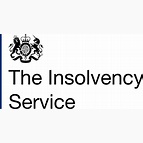 Rogue directors who dissolve their companies, including estate agents, to avoid paying liabilities to staff, creditors and the taxpayer can now be disqualified from being a director.
Rogue directors who dissolve their companies, including estate agents, to avoid paying liabilities to staff, creditors and the taxpayer can now be disqualified from being a director.
The Insolvency Service has been granted new powers to tackle unfit directors who dissolve companies, including estate agents, to avoid paying their liabilities.
The new legislation extends the Insolvency Service’s powers, on behalf of the Business Secretary, to investigate and disqualify company directors who abuse the company dissolution process.
The Rating (Coronavirus) and Directors Disqualification (Dissolved Companies) Act will also help tackle directors dissolving companies to avoid repaying government backed loans put in place to support businesses during the Coronavirus pandemic.

The Insolvency Service has powers to investigate directors of companies that enter a form of insolvency, including administration and liquidation. The Insolvency Service may also be instructed to investigate live companies where there is evidence of wrongdoing.
This Act extends those investigatory powers to directors of dissolved companies and if misconduct is found, directors can face sanctions including being disqualified as a company director for up to 15 years or, in the most serious of cases, prosecution.
Business secretary Kwasi Kwarteng said: “We want the UK to be the best place in the world to do business and we have provided unprecedented support to businesses to help them through the pandemic.
“These new powers will curb those rogue directors who seek to avoid paying back their debts, including government loans provided to support businesses and save jobs. Government is committed to tackle those who seek to leave the British taxpayer out of pocket by abusing the covid financial support that has been so vital to businesses.”


Good to see some well overdue tightening up of the insolvency gravy train whereby anyone can simply close down their business and immediately set up shop across the street or in some cases the same shop under a different company name and stick two fingers up at their creditors and HMRC ( us tax payers ) and believe it to be a great way of maintaining their lifestyle. Unfortunately it doesn’t go far enough in my opinion it should also include links to proven business associates or even worse relatives acting as stooges for the real owner(s) i.e. the aforementioned director(s) but at least it’s a start. As the North East seems topical at the moment reminds me of a pie story a while back of an agent whose dissolved his company and his wife subsequently bought back the company from the insolvency practice appointed to dispose of the assets then continued to trade on and had the brass neck to install her husband back into the business as company chairman! The name of the business escapes me but no doubt someone up north may remember the story to confirm my comments.
You must be logged in to like or dislike this comments.
Click to login
Don't have an account? Click here to register
Sanderson Young
propertyindustryeye.com/regional-firm-in-administration-after-hmrc-pulls-the-plug-finds-buyer/
You must be logged in to like or dislike this comments.
Click to login
Don't have an account? Click here to register
Something else for me to pursue…
You must be logged in to like or dislike this comments.
Click to login
Don't have an account? Click here to register
I have personal experience of a debtor successfully escaping with tens of thousands of pounds via the CVA process.
What incensed me the most were the fees of the insolvency practitioner who pocketed the majority of the CVA money leaving the creditors high an dry with a total pay-out of less than two pennies on the pound – a grand total of less than £4,000.
In the meantime, the insolvency practitioner paid themselves handsomely over £25,000 from the savings pot that was supposed to go to the creditors. It turns out that this is “the system” and perfectly legitimate.
Cross does not even begin to explain my feelings towards this prescribed form of daylight robbery!
You must be logged in to like or dislike this comments.
Click to login
Don't have an account? Click here to register
I mean you can simply “lift the corporate veil“… its an established practice (The corporate veil can be lifted when a corporate entity is used in defence proceedings or as a shield to cover wrongdoings in tax matters).
This is another instance of regulatory enforcement not using their powers to their full extent!
You must be logged in to like or dislike this comments.
Click to login
Don't have an account? Click here to register